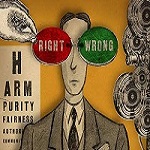An ideal atmosphere for employees and clients is one where methods of doing business cannot be questioned by the skeptical eye. Ethics can be the difference between a committed versus simply a compliant employee. It can be the difference between a client that spreads the word about for the greatness of a business for doing the right thing, and a client who vows to never become a returning client and further the cause of an unethical organization. In this course, you’ll learn about the standard of ethics and ideals that most successful businesses follow, while maintaining team member morale and optimum efficiency. To cover the major concepts, we will use real life examples and conduct industry wide case studies as we go through the course.

Ethical Theory and Business Practice
- Why think about ethics on the job?
- What studying ethics can (and can’t) do for you.
- How to think about ethics: three points of view (norms, goals, persons, and relationships).
- How important are ethics in the modern world?
- What’s special about business ethics?
- Basic moral values and how they affect business: respect; responsibility; integrity; personal growth; liberty; justice; beneficence.
- Some systems of relationship: threat systems; exchange systems; integrative systems.
- Justice and economic distribution.
Social Responsibility of Business
- Concept that businesses are accountable to more than their owners.
Relativism and Its Four Forms
- Reasons to avoid making ethical decisions.
Stakeholder Analysis
- A framework considering who is affected by a business decision.
The Rules of the Game
- As long as they comply with the letter of the law and conscious.
Why Study Ethics
- To be able to take the right decision at the right time. And stand by it.
